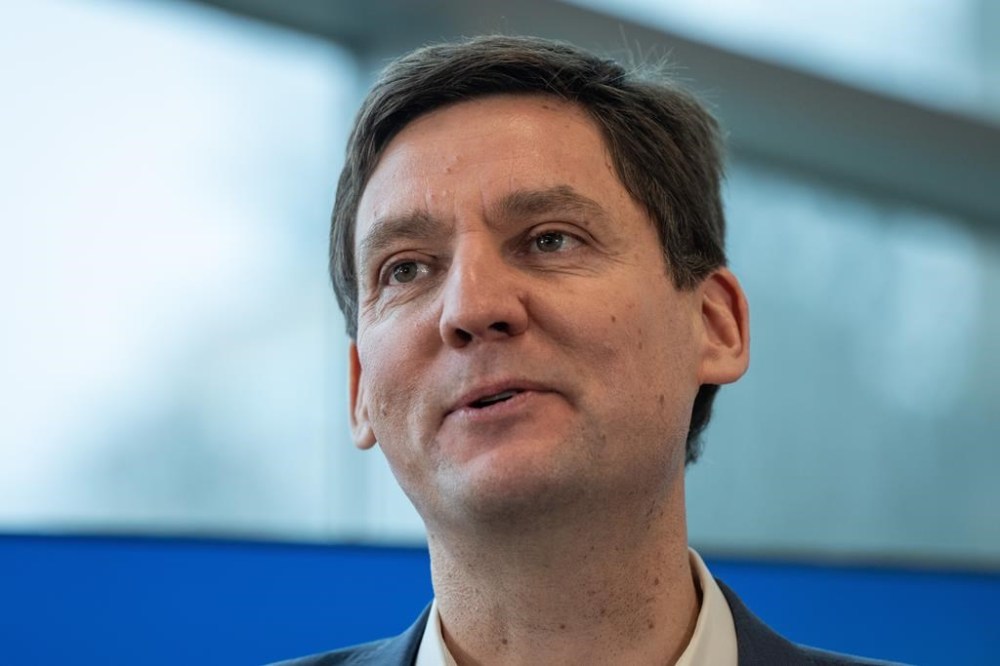‘Baloney factory’: Eby mocks Poilievre letter asking B.C. to join carbon price fight
Advertisement
Read this article for free:
or
Already have an account? Log in here »
To continue reading, please subscribe:
Monthly Digital Subscription
$0 for the first 4 weeks*
- Enjoy unlimited reading on winnipegfreepress.com
- Read the E-Edition, our digital replica newspaper
- Access News Break, our award-winning app
- Play interactive puzzles
*No charge for 4 weeks then price increases to the regular rate of $19.95 plus GST every four weeks. Offer available to new and qualified returning subscribers only. Cancel any time.
Monthly Digital Subscription
$4.99/week*
- Enjoy unlimited reading on winnipegfreepress.com
- Read the E-Edition, our digital replica newspaper
- Access News Break, our award-winning app
- Play interactive puzzles
*Billed as $19.95 plus GST every four weeks. Cancel any time.
To continue reading, please subscribe:
Add Free Press access to your Brandon Sun subscription for only an additional
$1 for the first 4 weeks*
*Your next subscription payment will increase by $1.00 and you will be charged $16.99 plus GST for four weeks. After four weeks, your payment will increase to $23.99 plus GST every four weeks.
Read unlimited articles for free today:
or
Already have an account? Log in here »
Hey there, time traveller!
This article was published 15/03/2024 (667 days ago), so information in it may no longer be current.
TERRACE, BRITISH COLUMBIA – A letter from Opposition Conservative Leader Pierre Poilievre to British Columbia Premier David Eby, asking him to help halt a federal carbon price increase, was dismissed by Eby as a “baloney factory” campaign tactic.
Poilievre’s letter sent Friday asked Eby to join seven other premiers in opposing the April 1 increase, saying the 23 per cent rise amounts to an extra 18 cents on a litre of fuel, and people in B.C. and Canadians can’t afford it.
“I am writing, asking that you: do not administer the April 1 tax hike,” said the one-page letter. “Join the seven other premiers demanding (Prime Minister Justin) Trudeau stop the hike.”

Poilievre’s letter said the carbon pricing system set up by Trudeau is an imposition on the provinces that requires them to accept an ever-increasing levy.
But Eby, speaking at an unrelated news conference in Terrace, said B.C. residents would end up with less money returned to them if the government accepted Poilievre’s “campaign office and baloney factory” request.
“I don’t live in the Pierre Poilievre campaign office and baloney factory,” said Eby. “I live in B.C., am the premier, and decisions have consequences. The fact we face is that if we followed Mr. Poilievre’s suggestion there would be less money returned to British Columbians after April 1 than there would be if the federal government administered this increase directly.”
B.C. introduced North America’s first broad-based price on carbon in 2008, and will administer the coming increase on behalf of the federal government.
Poilievre’s letter said people in B.C. and across Canada are in need of relief and not tax increases.
“It makes no difference to the hard-working people of B.C. who administers the tax, they still pay it,” said the Poilievre letter.
The premiers of Alberta, Saskatchewan, Ontario, New Brunswick, Nova Scotia, Prince Edward Island and Newfoundland and Labrador have asked the federal government to drop the April 1 increase.
The scheduled increase appears to have sparked political tensions between Trudeau’s federal Liberal government and the provincial Liberal government in Newfoundland and Labrador.
Trudeau accused Newfoundland and Labrador Premier Andrew Furey on Friday of “continuing to bow to political pressure” with his opposition to the anticipated carbon price increase.
“I think Canadians in Newfoundland and Labrador, and right across the country, expect their governments to do the right thing,” Trudeau told reporters in Montreal, adding the carbon pricing program returns more money to households in rebates than what most people pay out.
Furey, Canada’s only Liberal premier, has been battling against the charge on carbon for the past year.
He said people in rural areas cannot immediately access energy alternatives such as public transit and electric vehicles on top of facing the burdens of inflation.
The carbon price is set to rise to $80 per tonne, up from $65 per tonne.
— By Dirk Meissner in Victoria
This report by The Canadian Press was first published March 15, 2024.




